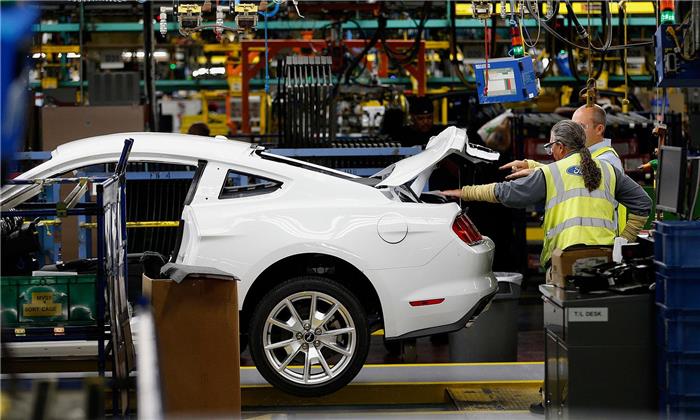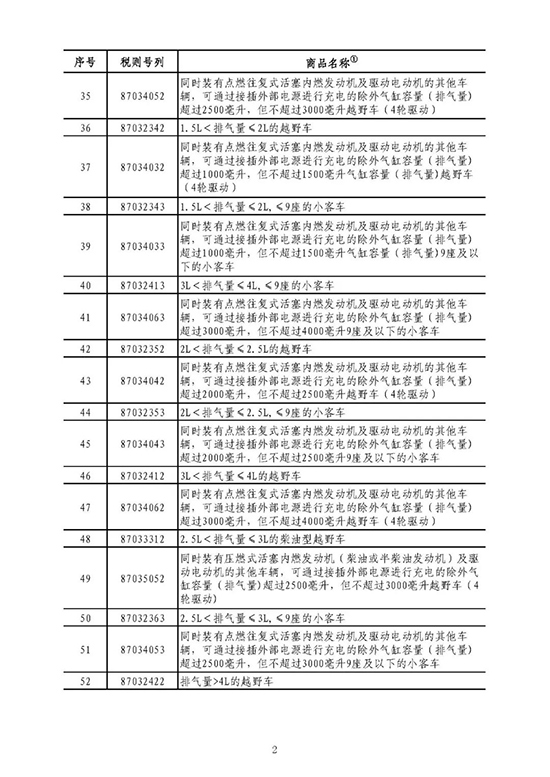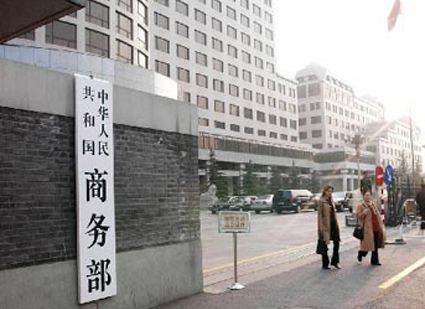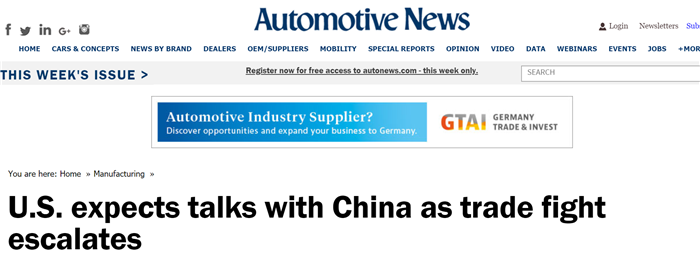"I'm going to fight, I will fight." The biggest news in the automobile circle that entered April is that the smoke of the Sino-American trade frictions has filled the air. For Trump and the U.S. government’s “nothingness†in trade disputes, it triggered a strong response from the Chinese government. On April 3, 2018, US time, the U.S. government announced that it would impose a 25% tariff on imported products originating in China, based on the results of unilateral findings of 301 investigations, involving approximately US$50 billion of Chinese exports to the United States. Some analysts pointed out that this measure of the United States clearly violates the relevant rules of the World Trade Organization and seriously violates China’s legitimate rights and interests under the rules of the World Trade Organization and threatens China’s economic interests and security. Only after 11 hours and on April 4th, China responded strongly to the US-China trade war that was deliberately provoked by the United States. The Chinese Ministry of Commerce announced that it will impose tariff levying on imports of soybeans and other agricultural products, automobiles, chemicals, and aircraft imported from the United States. The tax rate is 25%, involving about 500 Chinese imports from the United States in 2017 One hundred million U.S. dollars. Come and not be indecent as well. 50 billion to 50 billion, this is a hard-to-reach hard-to-reach, including tariffs on agricultural products, automobiles, and airplanes, indicating the strength and strength of this trade friction. This Sino-U.S. trade friction also triggered a high degree of concern in the global automotive industry. If the trade war is "opened," the consequences will be serious. As the People's Daily commented, "The trade war is overcast, leading to a bloody market. On the morning of April 4, US local time, all the major US stock indexes drifted across the board. Dow Jones Industrial The index fell 510 points at the opening, as at 10:30 a.m. on April 4, the Dow Jones Industrial Average lost 1.5%, the S&P 500 Index fell 0.9%, and the Nasdaq Composite Index fell 1%. Falling even worse. Some analysts believe that the unilateral trade dispute provoked by the Trump administration may end the U.S. nine-year bull market." So, who will be affected by this storm? According to a report by Bloomberg, Tesla will face relatively large risks because of the pure import method. Tesla sold 14883 vehicles in the Chinese market last year, which only accounted for 3% of the world's largest electric vehicle market. In February of this year, China imported 2,323 pure electric vehicles from the United States, and Tesla took up 2,160 vehicles. , is the "big family" of imported electric cars. The Ministry of Commerce’s 25% tariff increase measures also include pure electric vehicles. It is worth noting that Tesla founder, Musk, recently commented on China’s “tariff.†In March, he issued three push trade policies for Zambian Trump. “At present, American cars need to pay 25% to enter China. Import tax, but China's autos only need 2.5% import tax; China’s policy states that US autos’ subsidiaries in China can only have 50% of the shares, but China now has 5 fully automated cars in the United States. Company." The Chinese auto industry quickly responded to such a statement by Musk. On April 1st, Dong Yang, Executive Vice Chairman of the China Association of Automobile Manufacturers, published the article “Talking Tesla Againâ€, which profoundly analyzed the reasons why Tesla’s development is currently difficult in China. "(I) do not agree with Musk's accusation against the Chinese government on Twitter. Compared with the three major US companies, Tesla still has a gap in its grasp of the Chinese market and its understanding of the policy." According to statistics, in the first two months of the year, about 36,000 cars were exported from the United States to China. In addition to US car prices, there were also German cars produced in U.S. factories, including BMW X4, X5, X6, and Mercedes-Benz GLE, for example. The GLS is also affected by the tariff increase policy. Bloomberg estimates that German car companies have suffered as much as $7 billion in value. Terminal distributors have already expressed their concerns. Some Lincoln dealers in the Beijing area said in an interview with the Car Headline APP that the price increase depends on the specific schedule of tariffs, but many potential customers call the first time to ask if they want to increase their prices. “We are waiting for business policies to come out this weekend. There will be no price increase.†Obviously, although the “stick†for taxation has not yet fallen, there are already signs of advance buying in the market. Still have a turn? So, where will the future of this trade field be headed? Is it inevitable that the storm covering the global automotive industry is inevitable? It is worth noting that U.S. President Trump issued a tweet on the 4th local time, saying: "We did not fight a trade war with China. The war was defeated many years ago by those stupid and incompetent people who represented the United States. Now we There is a trade deficit of 500 billion U.S. dollars a year, and another 300 billion U.S. dollars of intellectual property is stolen. We cannot let this continue!" After Trump expressed his position, foreign media also disclosed that the U.S. government is looking for the possibility of consultation. According to a Reuters report, as the Chinese government quickly stated that it would impose taxation on imported cars from the United States, the share prices of American car companies fell sharply. The Chinese government’s quick counterattack “has caused some people in the U.S. government to feel serious about the situationâ€. Larry Kudlow, chief economic adviser to the White House National Economic Committee of Trump, quickly supported the US stocks, but he also admitted that there is room for negotiation. "Don't overreact. We will see how this is resolved. By the end of the process, there will be a large amount of gold at the end of the rainbow." U.S. Secretary of Commerce Wilbur Ross told CNBC on Thursday that he does not believe that the recent introduction of President Trump’s tariff will lead to a Sino-US trade war. "I am not surprised that there is a possibility of consultation and resolution in the future." In an interview recently, Wang Shuwen, the Chinese Vice Minister of Commerce, said: “China is unwilling to fight a “trade war†because there are no winners in the “trade war.†But we are not afraid to fight a “trade war.†If someone insists on In the “trade war,†we have always been with us, and China’s consistent position is that the door to negotiations and consultations is always open, and if the US is willing to talk, we are willing to conduct consultations on the basis of equal consultations and mutual respect to resolve differences. Simply put, if someone insists on fighting, we will accompany it. If someone is willing to talk, the door will be open." Obviously, the trade friction that has affected the automobile circle is already full of smoke and no tariffs have yet been imposed. China’s pivotal market position has already severely affected the share price performance of US car companies. However, under the "high pressure" of China's countermeasures, there is still room for manoeuvre. What is the trend of trade friction between the two countries? What kind of destiny does the auto companies that have been entrusted with? SHOUYAO SUMMER 2020 COLLECTIONS: SHOUYAO SUMMER 2020 SHAOXING NEWIDEA GARMENT CO.,LTD , https://www.shouyaoapparel.com
![]()




![]()
GARDEN
FRUIT
SAILOR
WHILE
COOL GIRL